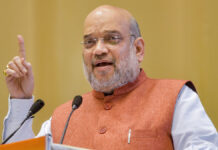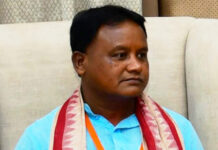‘Ram Mandir’ ceases to be an issue to whip up popular sentiments, election or no election. It was equally heartening to hear Mohan Bhagwat, the chief of the Rashtriya Swayamsevak Sangh (RSS), say that his organisation was not meant for launching agitations. It believed in character-building.
Supreme Court’s five-judge constitutional bench has finally put an end to the contentious Ram Janmbhoomi-Babri Masjid dispute. The verdict is unambiguous and one would hope now there is reconciliation between Hindus and Muslims.
There are some obvious political implications of the issue with impact on our nation’s polity. The best and the most important thing about it has been the avoidance of recrimination in the wake of the judgement. Even if the muslims were not fully satisfied with the judgement they did not resort to inflammatory rhetoric or histrionics. The BJP similarly did not gloat over the verdict and made no attempt at grandstanding and claiming victory.
In effect this would mean “Ram Mandir” ceases to be an issue to whip up popular sentiments, election or no election. It was equally heartening to hear Mohan Bhagwat, the chief of the Rashtriya Swayamsevak Sangh (RSS), say that his organisation was not meant for launching agitations. It believed in character-building.
The Sangh Parivar patter families also hinted that Kashi and Mathura issues were off the table for RSS as of now. Like Bhagwat, Prime Minister Narendra Modi and Home Minister Amit Shah also emphasized that the verdict should be celebrated as a platform for reconciliation. It should not be seen as the victory of any one side.
The Congress, too, has welcomed the judgement instead of joining issue with the BJP. This is a wise stand to take for a party which is still trying to recover from the drubbing it got in the last elections. The party had not gained much by targeting the BJP on the issue of abrogation of Article 370.
This is a rare case of a consensus between the ruling party and the main opposition and underscores the contentious nature of the issue. One only hopes BJP in future does not seek to highlight such issues focussing on majoritarian grievance to whip up popular support.
From the looks of it post Kashmir the BJP wants reconciliation to be on the top of its agenda. This is evident not only from the subdued and level headed reactions of its own top party leaders but also from the statements of RSS and its affiliates some of whom have been very aggressive in their approach to the issue.
Significantly, LK Advani, the man who brought the issue of Ram Mandir into focus with his Rath Yatra and was witness to the demolition of Babri Masjid was quiet on the day of the verdict. The Supreme Court, by calling the destruction of the Babri Masjid unlawful, made it clear that it did not approve of the violent movement.
All is well that ends well, goes the saying. One only hopes that that while steps are taken to build a grand temple at the site in Ayodhya the BJP learns from its past mistakes and treads cautiously on such subjects instead of trying to seek political capital. This is not good for our polity which is essentially secular in nature.





































